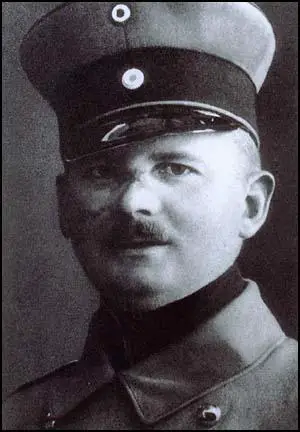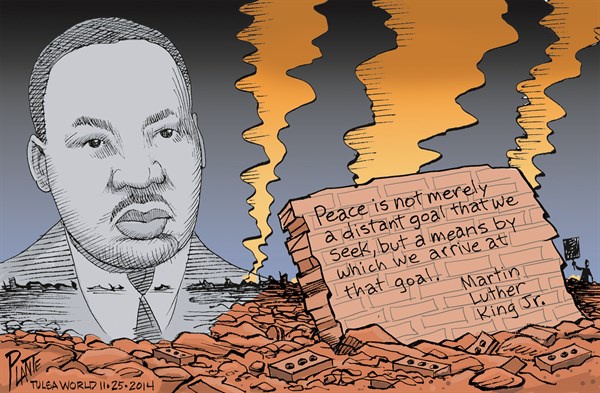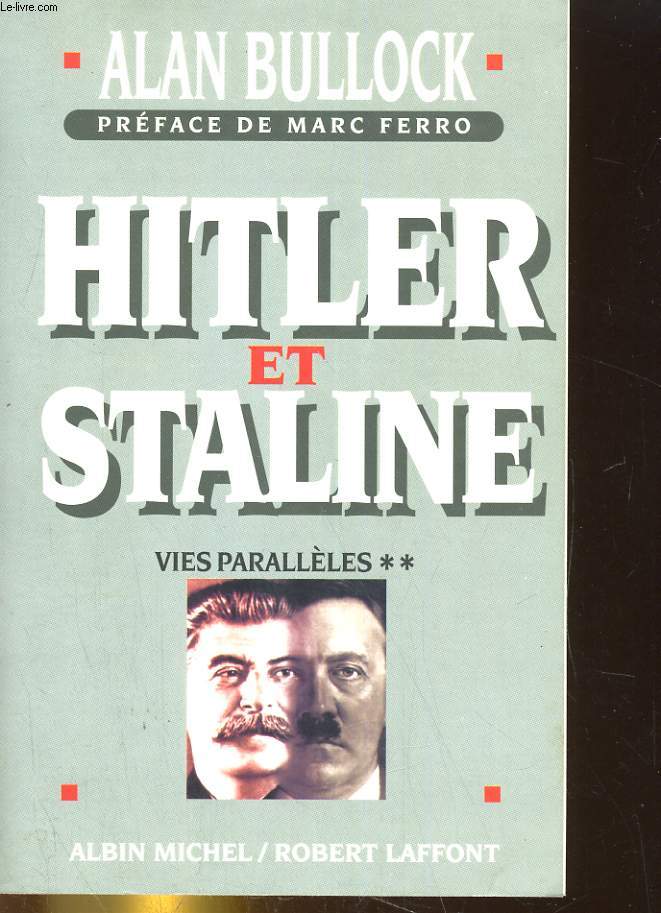
November 28
1820 Birth: Friedrich Engels in Germany, social philosopher; Karl Marx's collaborator.
1887 Birth: Ernst Roehm:

As an army captain in the early Twenties, Roehm will funnel money and arms from the army to the Nazis and in 1923 participate in the Munich putsch, after which he will be abruptly dismissed from the army. Military advisor in Bolivia, 1928-1930. Recalled by Adolf Hitler in 1931 and made head of the SA. In June 1934, he will be arrested on Hitler's orders during what has become known as "The Night of the Long Knives." Will be executed on Hitler's orders in Munich's Stadellheim prison after being accused of planning a coup d'etat against the Hitler government. http://www.jewishvirtuallibrary.org/jsource/biography/Roehm.html
1905 Ireland: Sinn Fein is founded in Dublin. (AP)
1914 New York Stock Exchange resumes bond trading:
On this day in 1914, the New York Stock Exchange (NYSE) reopens for bond trading after nearly four months, the longest stoppage in the exchange's history.
The outbreak of World War I in Europe forced the NYSE to shut its doors on July 31, 1914, after large numbers of foreign investors began selling their holdings in hopes of raising money for the war effort. All of the world's financial markets followed suit and closed their doors by August 1.
By the end of November, however, American officials had decided to reopen the NYSE because it was thought that bond trading, albeit with a set of restrictions designed to safeguard the American economy, could help prevent the financial ruin of the belligerent countries by raising money for the war effort. Trading of stocks didn't resume until December 12, 1914, when the Dow Jones Industrial Average (DJIA)--the most important of various stock indices used to gauge market performance--suffered its worst percentage drop (24.39 percent) since it was first published in 1896. This precipitous fall underlined the risky nature of business during the first months of the war, when nobody knew exactly how long the conflict would last or exactly what role the then-neutral U.S. would eventually end up playing.
Although the stock market would remain volatile--including a 40-percent drop in the DJIA from late 1916 to early 1917--World War I was a clear turning point in the realm of international finance. In its wake, New York would replace London as the top investment capital and the NYSE would become, for better or worse, the undisputed barometer of the world's economies. The NYSE did not close its doors for any extended period of time again until the terrorist attacks in New York and Washington on September 11, 2001, when trading was suspended for three days. (http://www.history.com/this-day-in-history/new-york-stock-exchange-resumes-bond-trading)
1915 World War I: Balkans: Late in the month, the remnants of the Serbian army, accompanied by a horde of civilian refugees, reaches the Adriatic, pursued by the Austrians.
1918 World War I: Kaiser Wilhelm II's Abdication Proclamation:

With revolution spreading to Berlin, Wilhelm was forced to abdicate on 9 November 1918. Chancellor Max von Baden pre-empted Wilhelm's decision by announcing his abdication to the public. Wilhelm sought exile in Holland, where he lived for the rest of his life. Holland refused to extradite Wilhelm as a war criminal to the Allies following the Armistice. [For further information, click here]
For some reason, the Kaiser did not sign the abdication document until 28 November 1918. The text is as follows:
I herewith renounce for all time claims to the throne of Prussia and to the German Imperial throne connected therewith. At the same time I release all officials of the German Empire and of Prussia, as well as all officers, non-commissioned officers and men of the navy and of the Prussian army, as well as the troops of the federated states of Germany, from the oath of fidelity which they tendered to me as their Emperor, King and Commander-in-Chief. I expect of them that until the re-establishment of order in the German Empire they shall render assistance to those in actual power in Germany, in protecting the German people from the threatening dangers of anarchy, famine, and foreign rule.
Proclaimed under our own hand and with the imperial seal attached. Amerongen, 28 November, 1918
Signed WILLIAM http://www.firstworldwar.com/bio/wilhelmii.htm
1919 Lady Astor becomes MP:
American-born Nancy Astor, the first woman ever to sit in the House of Commons, is elected to Parliament with a substantial majority. Lady Astor took the Unionist seat of her husband, Waldorf Astor, who was moving up to an inherited seat in the House of Lords.
Born in Danville, Virginia, in 1879, she was the daughter of a former Confederate officer who became a wealthy tobacco auctioneer. She married Robert Gould Shaw II, a Bostonian, in 1897, and they had one son before divorcing in 1903. Soon after, she visited England, where she met and fell in love with Waldorf Astor, the great-great-grandson of the American fur trader John Jacob Astor. In 1906, they married. Nancy Astor became an influential society hostess, presiding at the Astor country estate of Cliveden. The "Cliveden set," as the Astors' social clique became known, came to exercise considerable political influence in a number of fields, especially foreign affairs. . . .
Although regarded as a conservative, Lady Astor took an individual approach to politics, saying, "If you want a party hack, don't elect me." Her impassioned speeches on women's and children's rights, her modest black attire, and her occasional irreverence won her a significant following. Repeatedly reelected by her constituency in Plymouth, she sat in the House of Commons until her retirement in 1945. [http://www.history.com/this-day-in-history/lady-astor-becomes-mp]
1924 Death: Friedrich Ebert: first President of the Weimar Republic:

Following the outbreak of the German Revolution, Prince Max resigned on November 9, and Ebert was appointed Imperial Chancellor. The next day, however, in response to the unrest in Berlin, Ebert's associate Scheidemann declared the Kaiser had abdicated, ending the German Monarchy and proclaimed the German Republic, and an entirely Socialist provisional government took power under Ebert's leadership. Ebert accepted this new position only reluctantly.
1933 Antisemitism: Various:
Romania: Jassy: A pogrom is carried out by the Iron Guard.
Hungary: Budapest: The University is closed by the government until anti-Jewish disturbances cease.
1935 Various:
Holocaust: Advocates for Jewish refugees reject a proposed liquidation bank for German Jewry.
German army:The Reich proclaims all men aged 18 to 45 to be potential reservists.
1937 Various:
Spain: Francisco Franco blockades the Spanish coast.
Poland: The Bar Association in Lublin, Poland, restricts the number of Jews in the legal profession to a percentage corresponding to the ratio of Jews in the total population.
1938 Holocaust: Nazi officials introduce residential restrictions on Jews. Movement of Jews from locality to locality is prohibited. The presidents of German regional councils are empowered to impose curfews on their Jewish populations and designate certain places as off-limits (Judenbann). (THP)
1939 World War II: The USSR denounces its non-aggression pact with Finland, which had resisted Soviet pressures.
1941 Various:

Countdown to Infamy: Tokyo to Washington:
Well, you two Ambassadors have exerted superhuman efforts but, in spite of this, the United States has gone ahead and presented this humiliating proposal. This was quite unexpected and extremely regrettable. The Imperial Government can by means use it as a basis for negotiations. Therefore, with a report of the views of the Imperial Government on this American proposal which I will send you in two or three days, the negotiations will be de facto ruptured. This is inevitable. However, I do not wish you to give the impression that the negotiations are broken off. Merely say to them that you are awaiting instructions and that, although the opinions of your government are not yet clear to you, to your own way of thinking the Imperial Government has always made just claims and has borne great sacrifices for the sake of peace in the Pacific. Say that we have always demonstrated a long-suffering and conciliatory attitude, but that, on the other hand, the United States has been unbending, making it impossible for Japan to establish negotiations. Since things have come to this pass, I contacted the man you told me to . . . . and he said that under present circumstances what you suggest is entirely unsuitable. From now on do the best you can.
US War Department Adjutant General to Hawaiian Department Commanding General:
Critical situation demands that all precautions be taken immediately against subversive activities within field of investigative responsibility of War Department . . . . Also desired that you initiate forthwith all additional measures necessary to provide for protection of your establishments, property, and equipment against sabotage, protection of your personnel against subversive propaganda and protection of all activities against espionage. This does not, repeat not, mean that any illegal measures are authorized. Protective measures should be confined to those essential to security, avoiding unnecessary publicity and alarm . . . . this does not, repeat not, affect your responsibility under existing instructions. http://plhb.tripod.com/p1.html#220
Pacific: The aircraft carrier USS Enterprise gets underway from its home port of Pearl Harbor to deliver F4F Wildcat fighters to Wake Island.
Holocaust: Grand Mufti Haj Amin al-Husseini:

Hitler meets with the Grand Mufti of Jerusalem, telling him that Germany has declared an uncompromising war on the Jews. Britain and Russia are both power bases of Jewry, Hitler claims, and he will carry on the fight until the last traces of Jewish hegemony are eliminated. The German army will in the future break through the Caucasus into the Middle East and help to liberate the Arab world. Germany's only other objective in the region will be the annihilation of the Jews. http://www.palestinefacts.org/pf_mandate_grand_mufti.php
1942 World War II: Various:
Coffee rationing begins in the US, lasting until the end of the war.
Stalin to FDR:
I am glad to hear of your successes in the Solomons area and of the strong build-up of your forces in the South-west Pacific. Feeling certain of the speedy expulsion of Germans from North Africa, I trust that this will help in launching Allied offensive operations in Europe. The intensive air raids planned for Italy will no doubt be very useful. We have achieved some success in the Stalingrad operation, largely facilitated by snowfall and fog which prevented the Germans from making full use of aircraft. We have decided to launch operations on the Central Front, too, to keep the enemy from moving his forces south. I send my warmest regards and best wishes to the US Armed Forces.
1943 World War II: Nov 28-Dec 2 The Tehran Conference:
Churchill and Roosevelt meet with Stalin for the first time. During the deliberations, a date for the invasion of France, code-named Operation Overlord, is confirmed. Stalin agrees to launch a simultaneous attack on Germany's eastern front and is assured that a second invasion of France (from the Mediterranean), known as Operation Anvil, will also take place. Stalin reaffirms that the Soviets will join in the fight against Japan after Germany is defeated, but asserts that the USSR wants Sakhalin, the Kuril Islands, and a year-round Pacific port on the mainland of Asia. The restoration of Iran is also discussed. Note: Roosevelt also agrees to most of Stalin's territorial demands in Europe and asks that the arrangements be kept secret until after the next presidential elections in the United States. In Ankara, Anthony Eden tells the Turkish foreign minister that the Soviets will be given a free hand in the Balkans after the war.
1944 World War II: The first shipment of supplies reaches Antwerp by convoy, a new route for the Allies.
1945 Nuremberg Tribunal: Seventh Day: The continuation of Sidney Alderman's Presentation on Aggressive War. http://avalon.law.yale.edu/imt/11-28-45.asp
1954 Death: Enrico Fermi, architect of the nuclear age:
On this day in 1954, Nobel Prize-winning physicist Enrico Fermi, the first man to create and control a nuclear chain reaction, and one of the Manhattan Project scientists, dies in Chicago at the age of 53.
Fermi was born in Rome on September 1, 1901. He made his career choice of physicist at age 17, and earned his doctorate at the University of Pisa at 21. After studying in Germany under physicist Max Born, famous for his work on quantum mechanics, which would prove vital to Fermi's later work, he returned to Italy to teach mathematics at the University of Florence. By 1926, he had been made a full professor of theoretical physics and gathered around him a group of other young physicists. In 1929, he became the youngest man ever elected to the Royal Academy of Italy.
The theoretical became displaced by the practical for Fermi upon learning of England's Sir James Chadwick's discovery of the neutron and the Curies' production of artificial radioactivity. Fermi went to work on producing radioactivity by means of manipulating the speed of neutrons derived from radioactive beryllium. Further similar experimentation with other elements, including uranium 92, produced new radioactive substances; Fermi's colleagues believed he had created a new, "transuranic" element with an atomic number of 93, the result of uranium 92 capturing a neuron while under bombardment, thus increasing its atomic weight. Fermi remained skeptical, despite his fellow physicists' enthusiasm. He became a believer in 1938, when he was awarded the Nobel Prize in physics for "his identification of new radioactive elements." Although travel was restricted for men whose work was deemed vital to national security, Fermi was given permission to go to Sweden to receive his prize. He and his wife, Laura, who was Jewish, never returned; both feared and despised Mussolini's fascist regime.
Fermi left Sweden for New York City, Columbia University, specifically, where he recreated many of his experiments with Niels Bohr, the Danish-born physicist, who suggested the possibility of a nuclear chain reaction. Fermi and others saw the possible military applications of such an explosive power, and quickly composed a letter warning President Roosevelt of the perils of a German atomic bomb. The letter was signed and delivered to the president by Albert Einstein on October 11, 1939. The Manhattan Project, the American program to create its own atomic bomb, was the result.
It fell to Fermi to produce the first nuclear chain reaction, without which such a bomb was impossible. He created a jury-rigged laboratory, complete with his own "atomic pile," in a squash court in the basement of Stagg Field at the University of Chicago. It was there that Fermi, with other physicists looking on, produced the first controlled chain reaction on December 2, 1942. The nuclear age was born. "The Italian navigator has just landed in the new world," was the coded message sent to a delighted President Roosevelt.
The first nuclear device, the creation of the Manhattan Project scientists, was tested on July 16, 1945. It was followed less than a month later by the bombing of Hiroshima and Nagasaki. After the war, Fermi, now an American citizen, became a Distinguished Service Professor of Nuclear Studies at the University of Chicago, consulting on the construction of the first large-particle accelerator. He went on to receive the Congressional Medal of Merit and to be elected a foreign member of the Royal Society of London.
Among other honors accorded to Fermi: The element number 100, fermium, was named for him. Also, the Enrico Fermi Award, now one of the oldest and most prestigious science and technology awards given by the U.S. government, was created in his honor. (http://www.history.com/this-day-in-history/enrico-fermi-architect-of-the-nuclear-age-dies)
1989 Cold War: Czechoslovakia: Communist Party gives up monopoly on political power. [http://www.history.com/this-day-in-history/czechoslovakian-communist-party-gives-up-monopoly-on-political-power?et_cid=57479669&et_rid=704860882&linkid=http%3a%2f%2fwww.history.com%2fthis-day-in-history%2fczechoslovakian-communist-party-gives-up-monopoly-on-political-powere]
Edited by Levi Bookin (Copy editor)
levi.bookin@gmail.com






















Note: The content on this page changes regularly. Twitter: @3rdReichStudies






Featured Sites:Austria: The Other GermanyThe Last Days of the Third ReichAdolf Hitler: The First Super-VillianThird Reich History: What Happened Today?Countdown to Infamy: Timeline to Pearl HarborBiographical Timeline: of the Infamous Adolf HitlerCountdown To WW2: August 22 - September 1, 1939The Nuremberg Nazis: Detailed, Documented BiographiesWunderwaffen: Hitler's Deception and the History of RocketryMain Sites:
Adolf Hitler: The VolkswagenAdolf Hitler: The Fuehrer's MercedesAdolf Hitler: Mein Kampf ExaminedIn the Shadow of Frederick the GreatHitler's Battleship: Sink The Bismarck!Non-Fiction Comics: Military PeriodicalsHistory of Olympic Boycotts: From Berlin to BeijingHogan's Jews: 5 Cast Members Were Jews; Their Stories
Disclaimer: The Propagander!™ includes diverse and controversial materials--such as excerpts from the writings of racists and anti-Semites--so that its readers can learn the nature and extent of hate and anti-Semitic discourse. It is our sincere belief that only the informed citizen can prevail over the ignorance of Racialist "thought." Far from approving these writings, The Propagander!™ condemns racism in all of its forms and manifestations.
Fair Use Notice: The Propagander!™may contain copyrighted material the use of which has not always been specifically authorized by the copyright owner. We are making such material available in our efforts to advance understanding of historical, political, human rights, economic, democracy, scientific, environmental, and social justice issues, etc. We believe this constitutes a "fair use" of any such copyrighted material as provided for in section 107 of the US Copyright Law. In accordance with Title 17 U.S.C. Section 107, the material on this site is distributed without profit to those who have expressed a prior interest in receiving the included information for research and educational purposes. If you wish to use copyrighted material from this site for purposes of your own that go beyond 'fair use', you must obtain permission from the copyright owner.

Click to join 3rdReichStudies
...